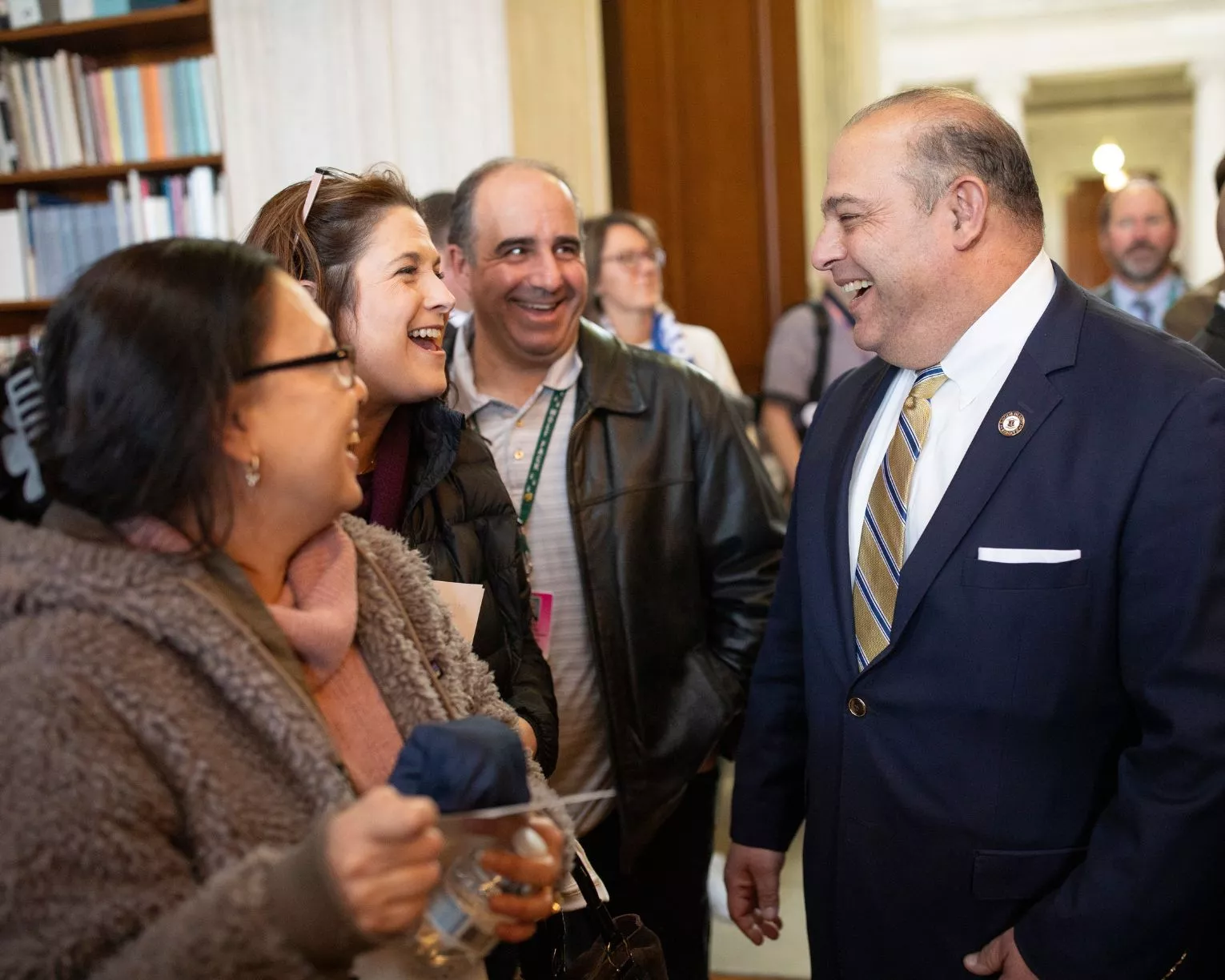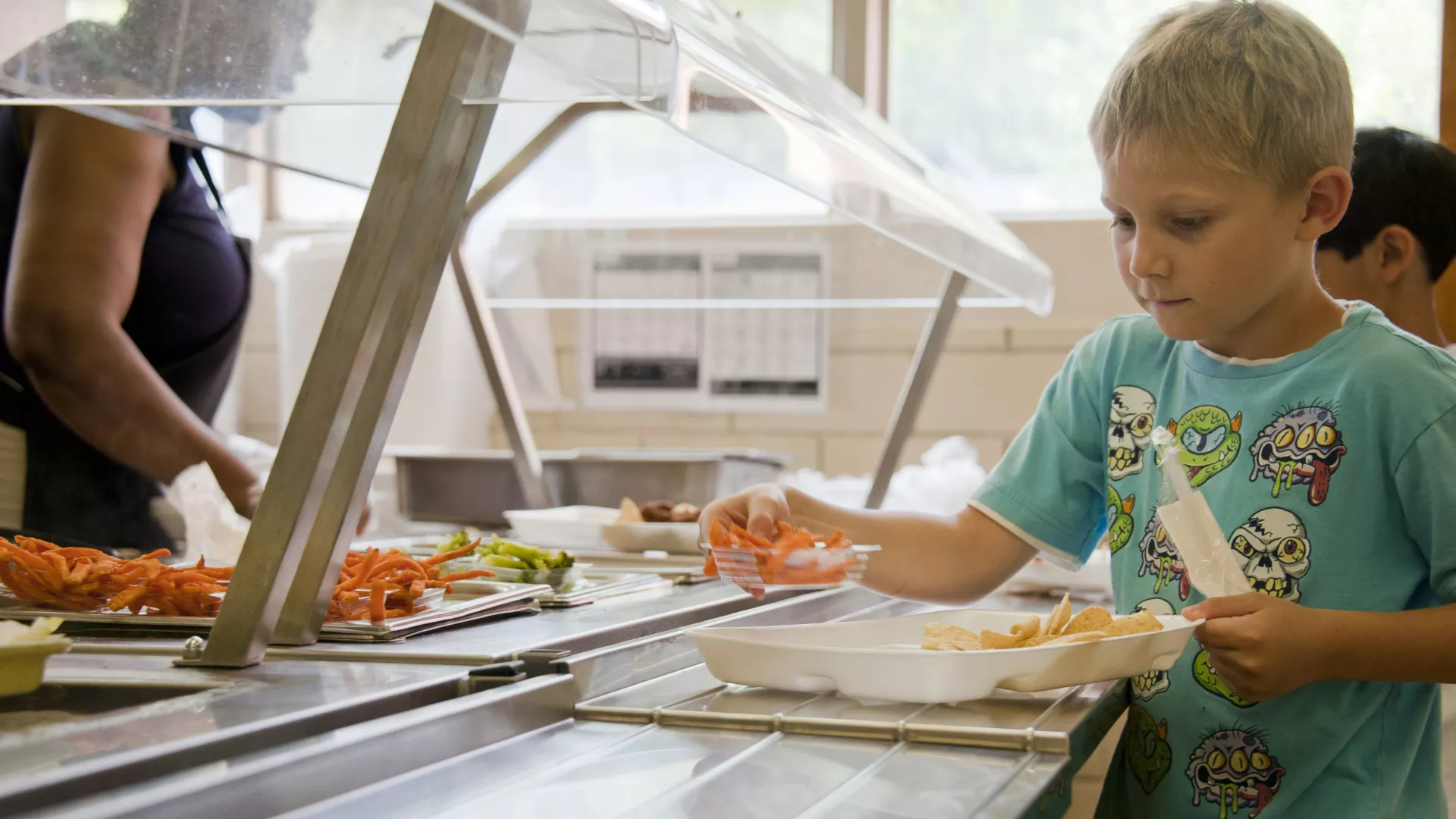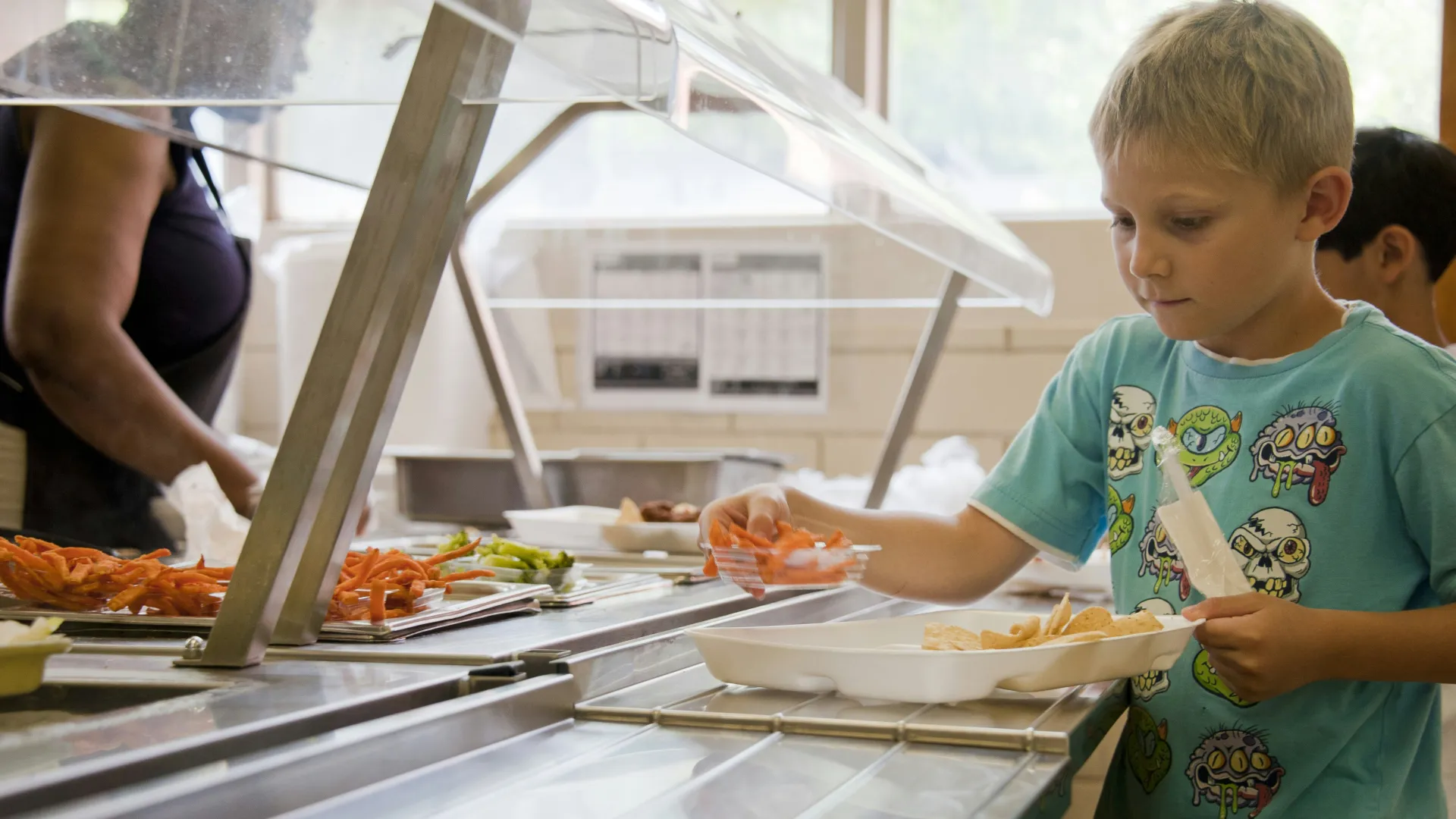It Is Time for Free, Healthy School Meals for All Students
Healthy School Meals for All (also known as Universal Free School Meals) means offering free breakfast and lunch to all students, regardless of their household income, as part of the school day so they can learn and thrive. Healthy School Meals for All supports student well-being, reduces administrative costs, increases investment in food service programs, eliminates unpaid meal debt, removes stigma from the lunchroom, and increases equity in our schools.
The pandemic taught us many important lessons – and with school meals, we learned there is a better way to provide vital nutrition to our children. During the pandemic (March 2020 – June 2022), the USDA provided funding for schools to offer meals free of charge to all students. This effectively served as a successful trial run of a Healthy School Meals for All policy. Regrettably, the federal pandemic waivers expired prior to the start of the current school year and, once again, school meal programs must operate under a tiered payment system of free, reduced-price, or full-price meals depending on family income eligibility.
With continued inaction at the federal level, it is time for Rhode Island to lead and ensure our children are hunger-free and ready to learn. Maine, California, Minnesota, and New Mexico have already enacted legislation making Healthy School Meals for All permanent. In the 2022 election, Colorado voters approved a ballot measure to provide free meals for all public school students. Massachusetts, Vermont, Nevada, and Connecticut funded extensions for the 22-23 school year and 23 other states are considering legislation. Serving school meals to all students at no cost on a permanent basis would be a gamechanger for students, families, and schools in our state.
Children and teens cannot learn on an empty stomach. Sadly, there are many students that need a nutritious breakfast and lunch at school who do not qualify for free or reduced-price school meals. Food insecurity is at an all-time high in our state. According to the RI Community Food Bank, nearly one in three households in Rhode Island are food insecure, meaning they struggle to afford adequate food (2022 Status Report on Hunger in Rhode Island, Rhode Island Community Food Bank). The RI Life Index identified 41 percent of households with children as food insecure in 2022 compared to 25 percent in 2021 (RI Life Index, Blue Cross & Blue Shield of Rhode Island and Brown University School of Public Health, November 2022). This crisis has health, educational, and economic consequences, leaving children particularly vulnerable to the long-term impact. Food insecurity can lead to a variety of negative health conditions, including diet-related disease, and has severe consequences on a child’s future health. School meals are an important source of nutrition and are a safeguard against chronic food insecurity. Healthy School Meals for All will benefit thousands of students each day and be a major step forward in eliminating health and education inequities.
The current policy for school meals, whereby some children are expected to pay while others receive their meals for free, creates stigma and shame for students that rely on school meals for their basic needs, and serves as a barrier for those students who are not eligible but are still experiencing food insecurity. It is an antiquated and broken system. Rhode Island’s education and school nutrition professionals haven’t wavered in their mission to keep kids fed, healthy, and ready to learn, but we must do better for our children and the pandemic showed us that Healthy School Meals for All is the way.
School meals are an integral part of the school day and a contributor to student success, and should be no different than textbooks, technology, transportation, access to school nurses, and other services provided to all students without cost. Universal school meals incentivize greater participation in the school meals program and allow schools to better invest in equipment, staff training, and initiatives such as farm-to-school that focus on scratch cooking.
Suggested Further Reading
-
"Here's what one of Rhode Island's largest teacher unions wants from lawmakers."
The Providence Journal
-
"Let’s prioritize children’s nutrition in Rhode Island" (Commentary)
The Boston Globe
-
2024 Rhode Island Kids Count Factbook
Food Research & Action Center (FRAC)
-
Healthy School Meals for All website
Healthy School Meals for All
-
School Meals Are Essential for Student Health and Learning. Food Research & Action Center
Food Research & Action Center (FRAC)
-
"All School Kids Should Eat Lunch for Free"
Mother Jones
-
2022 Status Report on Hunger in Rhode Island
Rhode Island Community Food Bank (RICFB)
Speak Up For Students and Public Schools

Your Voice Matters!
Sharing your stories and experiences can galvanize, warn, and persuade legislators in a way that facts and statistics do not.
Find your legislators' contact information and check out our resource on being an effective citizen lobbyist.



